Indexed In
DOAJ
CrossRef
PubMed
MEDLINE
ResearchBib
OAJI
Sindexs
Index Copernicus
EBSCO A-Z / Host
OCLC - WorldCat
Journal Flyer
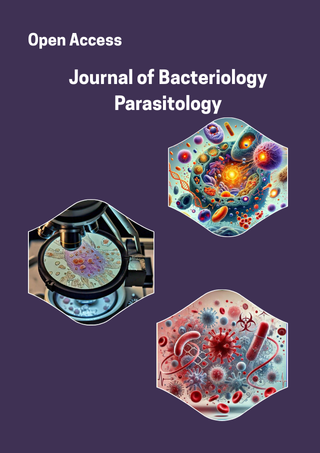
Journal Highlights
Useful Links
Recommended Journals
Open Access Journals
Editorial Board
The Editorial Board of the journal is responsible for maintaining the quality and integrity of the journal's content. The board members are experts in their respective fields and play a crucial role in the peer review process, ensuring that all articles published meet the highest academic standards.
The Editorial Board is committed to upholding the principles of academic excellence, transparency, and ethical publishing practices. They work closely with authors, reviewers, and the editorial team to facilitate a smooth publication process.
Editor-in-Chief
No Editor-in-Chief found.
Editorial Members
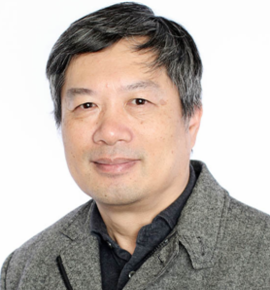
Yongxin Zhang, MD, Ph.D
Editorial MemberAffiliation: Zyxell Inc USA
Department: Department of Immunology and Microbiology
Designation: Chief Executive Officer
Email: zyx@zyxbiotech.comCountry: United states
Yongxin Zhang, CEO and president of Zyxell Inc., graduated from Beijing Medical University (Beijing, China) for his MD in 1983 and Ph.D. in 1989, and completed his postdoctoral training in Baylor College of Medicine (Houston, USA) in 2004 for molecular virology and immunology. His studies include pathogenesis, diagnosis, prevention and treatment of infectious diseases and cancer, transplantation immunology, vaccines and immunoassays. He worked as a physician for more than 10 years for infectious diseases and cancer in china. After he came to US in 1996, he worked as a postdoctoral research fellow in Baylor college of medicine, Research scientist in Methrogen Inc., senior scientist and director of research in Regenetech Inc, and CEO in Zyxell Inc. for totally over 25 years. His research areas include Immunology, Microbiology, Epidemiology, cell transplantation, stem cell technology, and bioreactor development, vaccine development, infectious diseases, cancer Biology, autoimmune diseases, liver pathology and immunoassay development.
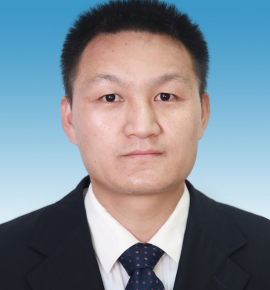
Hongzao Yang Ph.D
Editorial MemberAffiliation: College of Veterinary Medicine, Southwest University, Chongqing
Department: Department of Agricultural Science
Designation: Assistant Professor
Email: yhz03008@swu.edu.cnCountry: China
ongzao Yang, an agricultural science Ph.D., and work at the College of Veterinary Medicine, Southwest University. From 2015 to 2017, I conducted research and development of new veterinary traditional Chinese medicines at the Lanzhou Institute of Animal Husbandry and Veterinary Medicine, Chinese Academy of Agricultural Sciences, and Zhengzhou University. My work mainly focused on pharmacology and pharmacodynamics, as well as the quality standards of drugs. From 2020 to 2022, I was engaged in research on the molecular mechanisms of host proteins inhibiting calicivirus at the Shanghai Veterinary Research Institute, Chinese Academy of Agricultural Sciences. My research direction is mainly the innovation and development of natural drugs, and my research fields cover the research and development of new veterinary drugs, pharmacology of traditional Chinese medicine, pharmacology and toxicology, and animal structural genomics. Over the years, I have presided over or participated in many national and provincial-level scientific research projects and have published more than 20 academic papers.
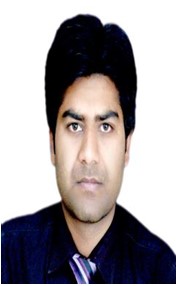
Arslan Emmanuel Ph.D
Editorial MemberAffiliation: School of Marine Sciences Ningbo University, Ningbo
Department: Department of Aquaculture
Designation: Lecturer
Email: 2002130001@nbu.edu.cnCountry: Pakistan
Dr. Arslan Emmanuel is a dedicated academic and researcher in the field of aquatic ecology, with a Ph.D. from the School of Marine Sciences, Ningbo University, china. With a strong foundation in Zoology and Fisheries from Pakistani institutions, he has conducted impactful research on aquaculture, fish physiology, and aquatic biodiversity. His publications span national and international journals, emphasizing wastewater bioremediation, fish health, and microbial communities. He is also a passionate educator, having taught biology and zoology at various secondary and higher secondary schools in Rawalpindi. Known for his sincerity,adaptabiliyand work ethic, Dr. Emmanuel has supervised numerous research thesis and participated in many national conferences. His work contributes to improving sustainable aquaculture practices and understanding aquatic ecosystems. Currently residing in Rawalpindi, Pakistan, he continues to inspire students and researchers alike through both teaching and active research in marine and freshwater system.
Dr. Arslan Emmanuel’s academic journey encompasses 20 years of formal education, specializing in Zoology and Aquatic Sciences. He earned his Ph.D. in Aquaculture with a research focus on aquatic ecology from Ningbo University, China, in 2020. Prior to that, he completed his M.Phil. in Zoology(Fisheries) from PMASArid Agriculture University, Rawalpindi, in 2016, and his M.Sc. in Zoology(Fisheries) from the University of Peshawar in 2014. His undergraduate studies include a B.Sc.in Zoology, Botany, and Chemistry from Government College Asghar Mall under the University of the Punjab in 2011. He completed his HSSC(2006) and SSC(2004) from Rawalpindi institutions with Biology and Science streams. His curriculum spanned a wide range of zoological and ecological subjects, including aquaculture system management,conservation biology, environmental science, molecular evolution, and parasitology, shaping a holistic understanding of aquatic life and enabling his extensive research and teaching contributions in the field.
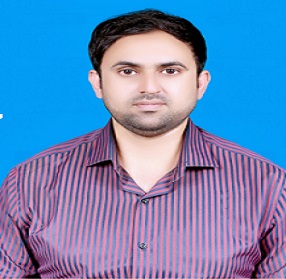
Muhammad Junaid Ph.D
Editorial MemberAffiliation: The Superior University Multan Campus, Multan
Department: Department of Physics
Designation: Assistant Professor
Email: mjunaid310@yahoo.comCountry: Pakistan
Dr. Muhammad Junaid is a multidisciplinary researcher with extensive expertise in material science, spanning the fields of physics, chemistry, biology, biochemistry, and biotechnology. With a strong foundation in the electrical and magnetic properties of advanced materials, Dr. M.Junaid has contributed to the development and characterization of energy materials, ferrites, metal oxides, and nanostructured systems, including nanosensors and thin films.
Specializing in band gap engineering, PVD/CVD deposition techniques, and green synthesis methods, Dr. M.Junaid has advanced sustainable approaches to material fabrication. Their research focuses on tailoring materials at the nano- and micro-scales for applications in energy conversion, storage devices, sensing technologies, and environmental and biomedical solutions.
With a growing body of work on antibacterial and antifungal properties of nanomaterials, especially metal oxide-based thin films and ferrite composites, Dr. M.Junaid has bridged the gap between material design and biological functionality. Their work integrates experimental synthesis, structural and functional characterization, and the application of nanotechnologies in real-world contexts, making significant contributions to both academic science and industrial innovation.

